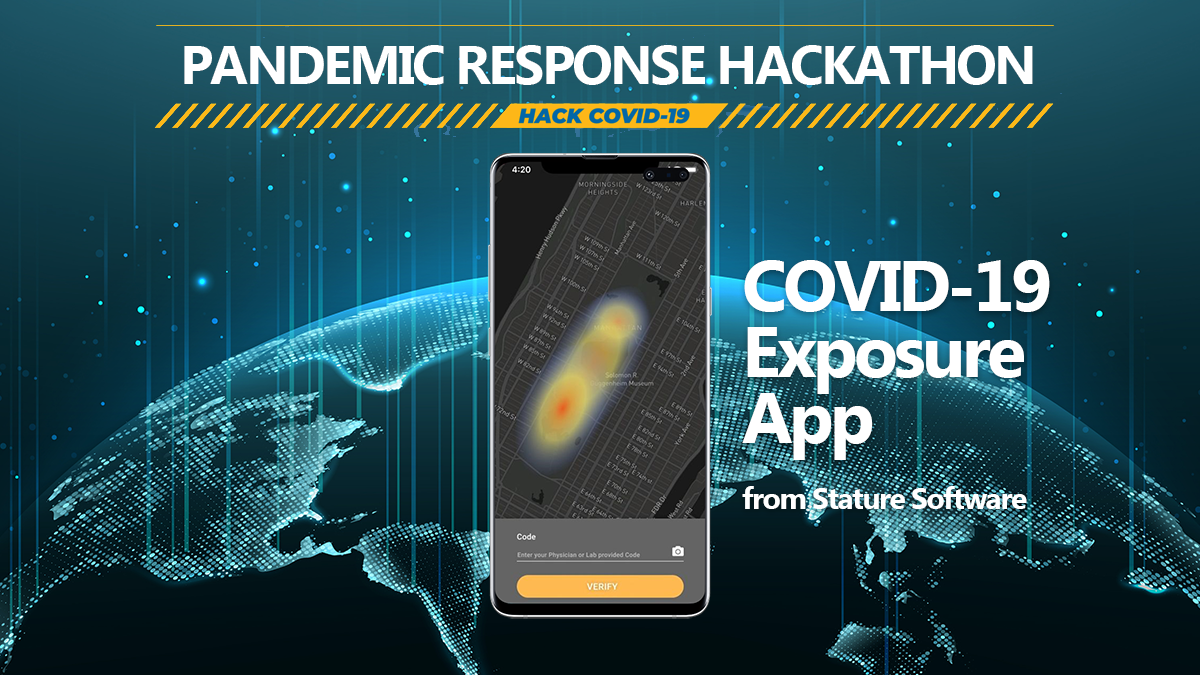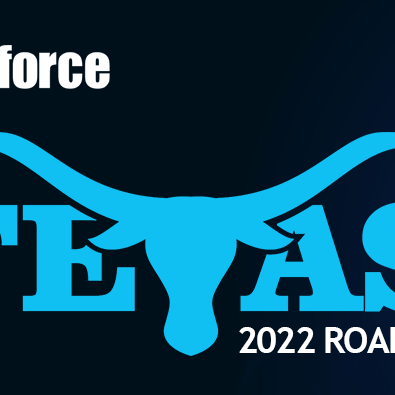
COVID-19 Exposure App
The Pandemic Response Hackathon to hack COVID-19 started this past Friday at 1600P EDT and continues through the weekend. The Pandemic Response Hackathon is a virtual hackathon aimed at better understanding and mitigating the spread of COVID-19 and future pandemics. The goal of the hackathon is to bring public health professionals alongside the technology community’s talent to contribute to the world’s response to the pandemic. An interdisciplinary panel of public health, health IT, and policy experts will serve as the steering committee for project ideas and implementation.
Blueforce is proud to be a participant and hacking two topics, one from our partner Stature Software in Saint Augustine, Florida. Stature’s COVID-19 Exposure App is 100% anonymous, it does not know your name, age, sex, etc. COVID-19 Exposure App simply runs in the background on your device, constantly monitoring your movement through your day.
As suspected and confirmed cases are anonymously logged into the global database (graciously contributed by our friends at AWS) we now have an increasing wealth of information that would typically take years to gather. Think “crowd-sourcing” for a cure. We can use this data to keep people safe, help prevent the spread, and help businesses return to normal operations sooner.
In the unlikely event that a user needs to see a physician, visit a hospital, or need to be tested for COVID-19 a medical professional will simply provide an 8-digit code linked to your result to enter into COVID-19 Exposure App. Again, this is 100% anonymous and authenticated.
The main objective of the app is to identify which devices have been exposed to COVID-19 to the Nth level of separation. With a high degree of accuracy the system can predict if you are contagious based on your device’s exposure history. We should be self-quarantining BEFORE we are contagious not when we test positive. Proactively getting infected people informed sooner would “flatten the curve” drastically and immediately. Medical professionals can use your exposure history as a critical tool toward the precautions they take when treating you including prioritization of testing.
By understanding where someone was prior to testing positive, we can analyze the data based on their movement and exposure to others down to the Nth degree and very accurately estimate the need for additional supplies and resources within a certain geography. For example if Patient X tested positive today but she has been feeling ill and is self-quarantining there is a good chance she didn’t infect anyone else. However, if Patient X was feeling fine and going to the local grocery store, hanging out at the popular restaurants or works at the local school we can accurately predict how many people she infected based on the exposure time and proximity. This information will be instrumental in helping to route supplies and resources before they are at critical level.
Essential medical equipment could be distributed to the areas of most anticipated need. If a suburb of Orlando has numerous positive results with multiple exposures prior to self-isolation, patient demographics (age, co-morbidities) could determine how many ventilators should be added to the arsenal of the local hospitals.
For more detail, view the hackathon movie, below, or send us a note: info@blueforcedev.com or jpatalano@staturesoftware.com.



